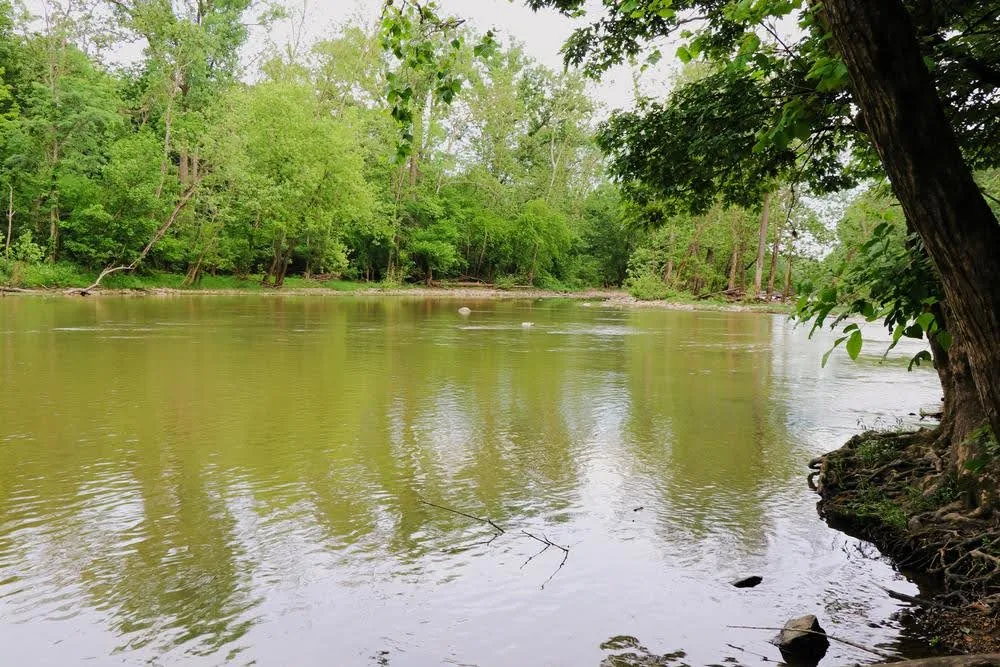Ohio Man Who Killed Thousands of Fish By Dumping 7,000 Gallons of Waste into the Scioto River is Sentenced

But someone is always watching. Mark Shepherd, 72, from Kenton, Ohio, found this out the hard way when he was sentenced to 12 months of probation, 150 hours of community service, and a $5,000 fine on Aug. 13 for violating the Clean Water Act and killing thousands of fish in the Scioto River, according to a DOJ press release. Shepherd must also pay $22,508.60 to the Ohio Division of Wildlife.
Shepherd owned and operated two businesses: Cessna Transport Inc. and A.G. Bradley Inc. Both companies transported hazardous waste and chemicals in Ohio, according to the press release.
Violating the Clean Water Act
On April 17, 2021, Shepherd violated the Clean Water Act and dumped around 7,000 gallons of a hazardous substance that contained ammonia into the Scioto River near Kenton, Ohio, say prosecutors. The chemicals spread around 18 miles from where Shepherd dumped it. A local fisherman in Hardin County noticed the dead fish and called authorities.

Tens of Thousands of Dead Fish
When the Ohio Department of Natural Resources assessed the damage, they found 43,094 fish, including minnows, flathead catfish, black bass, and sunfish, valued at more than $22,000, had been killed by the illegal discharge, say prosecutors. Wildlife officials voiced concerns about the spill and fish kill, noting that bald eagles frequently use Scioto River as a hunting ground and a nesting area.
In 2009, when the Ohio Environmental Protection Agency took a sample of in the same area, they rated it “Generally High-Quality Water,” as reported in an earlier DOJ press release in May.

Recalling the 1940s
Contamination to this degree has conservationists looking back to the 1940s when DDT-based insecticides were used near the river to control the population of insects like mosquitos, according to the most recent DOJ release. The insecticides washed into the waterways with the rain, poisoning the fish and the animals who ate them, including bald eagles.
This contributed to the decline of the bald eagles’ numbers, putting them on the endangered list before they recovered in 2007, according to the U.S. Fish & Wildlife Service.. Although bald eagles are no longer endangered, they are still protected under the Migratory Bird Treaty Act and the Bald and Golden Eagle Protection Act. Both acts “prohibit killing, selling, or otherwise harming eagles, their nests or eggs.”
“The Scioto River is home to abundant fish and other wildlife, and it is a valuable community resource, flowing through more than 230 miles of Ohio … anyone caught illegally discharging substances into our district’s waterways that harm our environment will face prosecution,” said U.S. Attorney Rebecca C. Lutzko for the Northern District of Ohio in the May press release.
“Our office is committed to preserving our natural resources for Ohio communities to enjoy for generations to come.”
Discover More Muck
Why George Floyd Got Justice But Jonathan Rodgers Got Forgotten
Report John Lynn | Aug 27, 2025

Card Cracker Turned Carjacker Sentenced to Six Years
Report Strahinja Nikolić | Feb 28, 2025

Weekly Muck
Join the mission and subscribe to our newsletter. In exchange, we promise to fight for justice.
Weekly
Muck
Join the mission and subscribe to our newsletter. In exchange, we promise to fight for justice.





